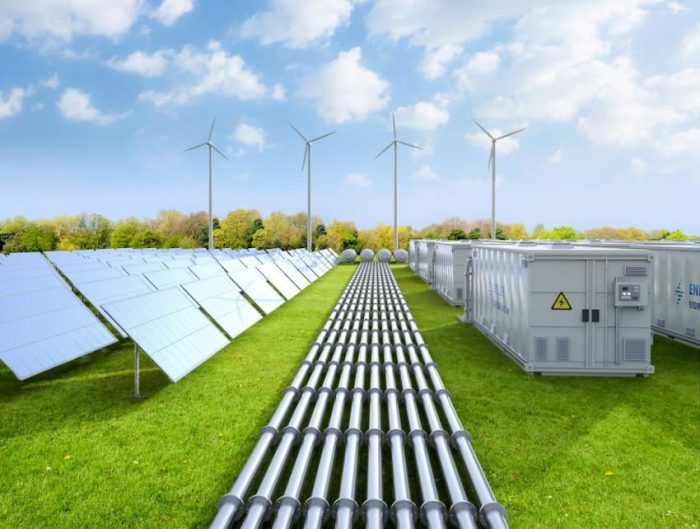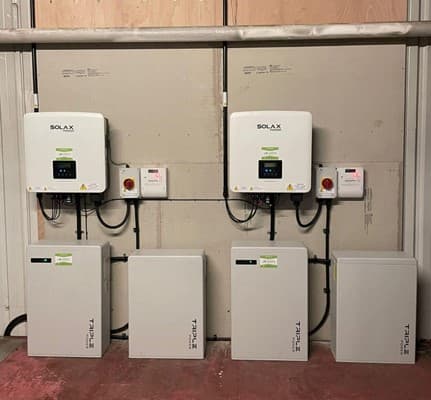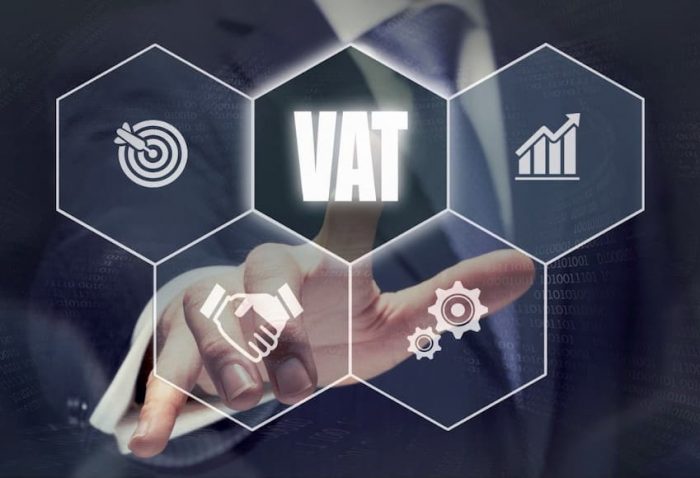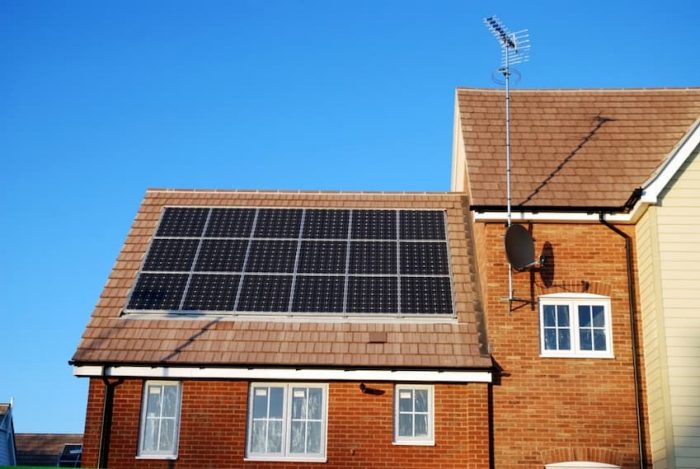
The landscape of the UK energy sector is on the brink of a transformative change as the government announces a significant policy shift. From the 1st of February 2024, the VAT on battery storage systems will be reduced to 0%, marking a remarkable milestone in empowering the energy sector and advancing the UK’s sustainability goals. This decision holds the potential to reshape the industry, offering a boost to sustainability efforts and opening new possibilities for both consumers and businesses.
In this article, we’ll dig into the current state of the UK energy sector, the government’s motives behind the VAT reduction, and the far-reaching implications it’s likely to have on various stakeholders, from consumers to businesses.

Current Status of the UK Energy Sector and the Role of Battery Storage Systems
In the UK energy sector, we’ve observed a consistent shift, marked by an increasing focus on renewable energy sources and an equally growing demand for efficient energy storage solutions. This development stems from the need to tackle global environmental challenges and progressively move away from fossil fuel-dependent energy generation methods. In this context, the role of battery storage systems has been central. These systems essentially address the intermittency problem of renewable energy generation, allowing energy producers to store surplus production during peak times and release it during periods of increased energy demand.
Despite the undeniable importance these storage systems have in supporting renewable energy production, financial barriers have stopped them from becoming widespread. Among these is the VAT implemented on these systems, which reduces their affordability and, consequently, their accessibility and utilisation. In fact, the imposition of VAT has slowed down the transition to cleaner energy alternatives, impacting larger sustainability goals. It is then clear that any billing changes, specifically VAT reductions or removal, could significantly alter this scenario, making storage systems more financially appealing while championing the UK’s green initiative.

Government Decision on VAT Reduction and Reasons Behind the Policy Change
Addressing the obstacles to the expansion of the energy storage market, the UK government has forged ahead with a decisive policy revision involving the reduction of VAT on battery storage systems to 0% starting on the 1st of February 2024. This decision is deeply rooted in the government’s commitment to achieving its sustainability goals. The vision is clear: reduce carbon emissions, cultivate a more resilient energy infrastructure, and adopt a reliable and adaptable energy landscape.
By dismissing the VAT burden, a major economic hurdle is removed, creating a more encouraging environment for both consumers and businesses to invest in sustainable energy storage solutions. This is expected to stimulate a wide-scale adoption of greener technology across the sector. The domino effect of this shift is evident: it strengthens the rate of transition towards a more sustainable energy landscape. It’s safe to say that this timely government intervention not only supports the energy sector but also propels more efficient, eco-friendly energy solutions nationwide.
Stimulating Growth in the Energy Storage Market
The VAT reduction is strategically positioned to fuel a surge in the growth and development of the energy storage market in the UK, especially if paired with business solar panel grants. By lifting VAT, both businesses and consumers will find themselves in more accommodating circumstances to make investments in battery storage systems. Not only would this stimulate immediate demand, but it also could pave the way for long-term shifts in energy consumption behaviour.
Popular systems like solar panels, so far inaccessible due to a cost barrier, will likely see a rise in user adoption, given this newfound financial reprieve. The benefits extend beyond immediate usage: it will spur innovation, research, and development within the sector. This injection of interest and investment can potentially lead to the creation of more advanced and efficient solutions.
This policy change, therefore, can potentially redefine the trajectory of the UK’s energy sector, aligning it more closely with a sustainable future.

Impact on Consumers: Reduced Costs and Renewable Energy Adoption
For consumers, the VAT reduction translates into a more affordable entry point for energy storage solutions. Lower costs make it financially feasible for homeowners and businesses to invest in residential solar panels and commercial solar panels, resulting in reduced energy bills over time. Also, the increased adoption of these solutions facilitates the integration of renewable energy sources, such as solar and wind power, into the energy grid, contributing to a more sustainable and environmentally friendly energy mix.
Enhanced Competitiveness and Growth Opportunities
Businesses across all industries stand to gain significantly from this policy change, especially companies in the renewable energy and battery manufacturing sectors. Under this new VAT-free landscape, their products, previously burdened with VAT-related costs, will gain added attractiveness in the eyes of potential users and investors.
In turn, these sectors can witness a substantial increase in demand, fuelling a cycle of entrepreneurial growth and job creation within these industries. The ripple effect of this expansion will likely permeate throughout the economy, providing a much-needed boost to the UK’s economic health. In a wider sense, these changes can lead to a surge in economic activities centred around renewable energy and battery manufacturing sectors, helping the UK take confident strides towards a more sustainable future.

Environmental Implications and Alignment with Green Energy Targets
From an environmental perspective, the reduction in VAT aligns with the UK’s green energy targets and sustainability goals. Increased adoption of energy storage solutions, such as solar panels, fosters the integration of renewable energy sources into the mainstream. This widespread assimilation of clean energy is integral to fighting climate change and subsequently upholding the nation’s commitment to reducing greenhouse gas emissions, ultimately paving the way towards a more ecologically responsible future.
As the UK strives to position itself as a net-zero emitter, this tax policy alteration represents a critical step that shows governmental accountability and acknowledgement of the pressing need for sustainable change, declaring the nation’s consistent commitment to making a greener and more sustainable future possible.
Embrace Energy Storage Solutions with Go Green Solar Group
As we witness this transformative moment in the UK energy sector, individuals and businesses need to consider the benefits of adopting energy storage solutions like solar panels. As prominent solar panel suppliers at Go Green Solar Group, we encourage everyone to explore the possibilities afforded by the VAT reduction on battery storage systems. Whether you are a homeowner looking to reduce your carbon footprint or a business aiming for enhanced competitiveness in the renewable energy market, now is the time to embrace the power of sustainable energy solutions.
Entrust our extensive knowledge and expertise in this industry; contact us today to explore the best and most sustainable solar panels in the North West, including Preston, Kendal, Carnforth, and other areas in Lancashire.


